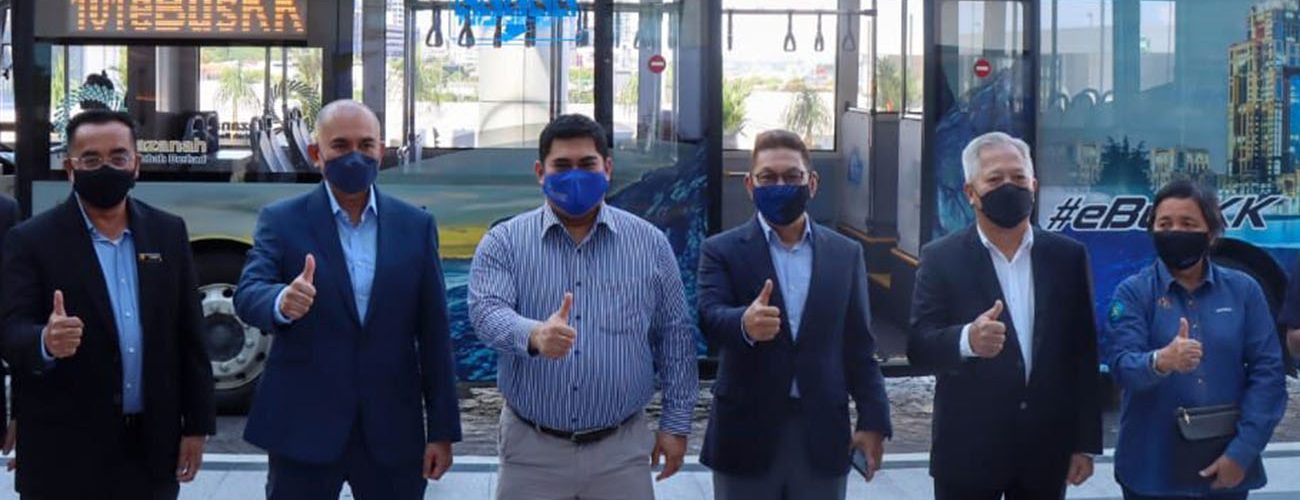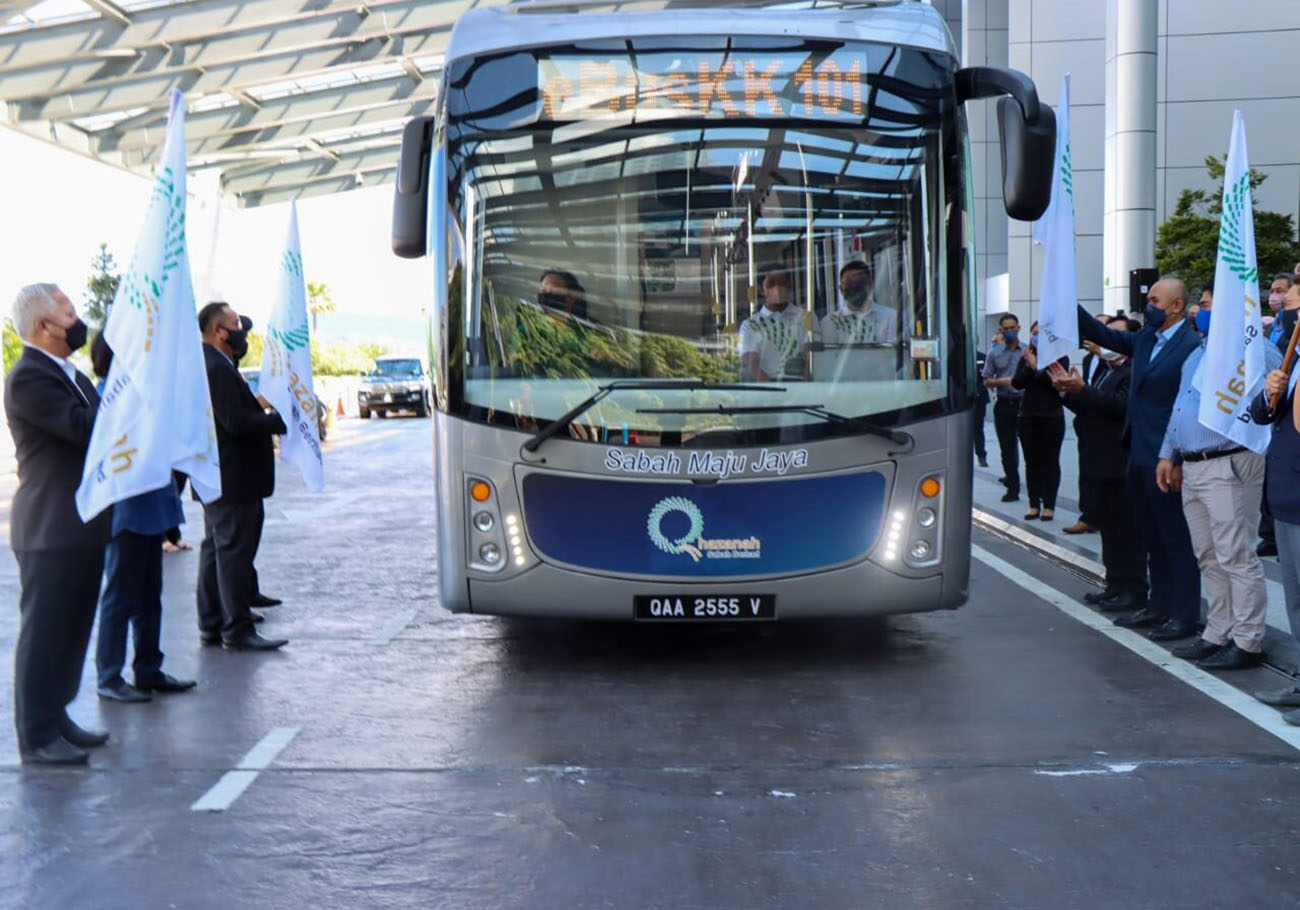
The Sabah state government has taken a major step towards sustainable transportation with the official launch of its pilot programme for an electric bus service in Kota Kinabalu. Originally planned for a debut in December, the programme experienced a slight delay due to technical reasons.
The pilot programme, spanning six months, features a single electric bus capable of transporting 54 passengers. The e-BusKK, as it is officially known, will operate along an 8.3km route connecting Sepanggar and Menara Kinabalu in Kota Kinabalu’s downtown area.
e-BusKK pilot programme and features
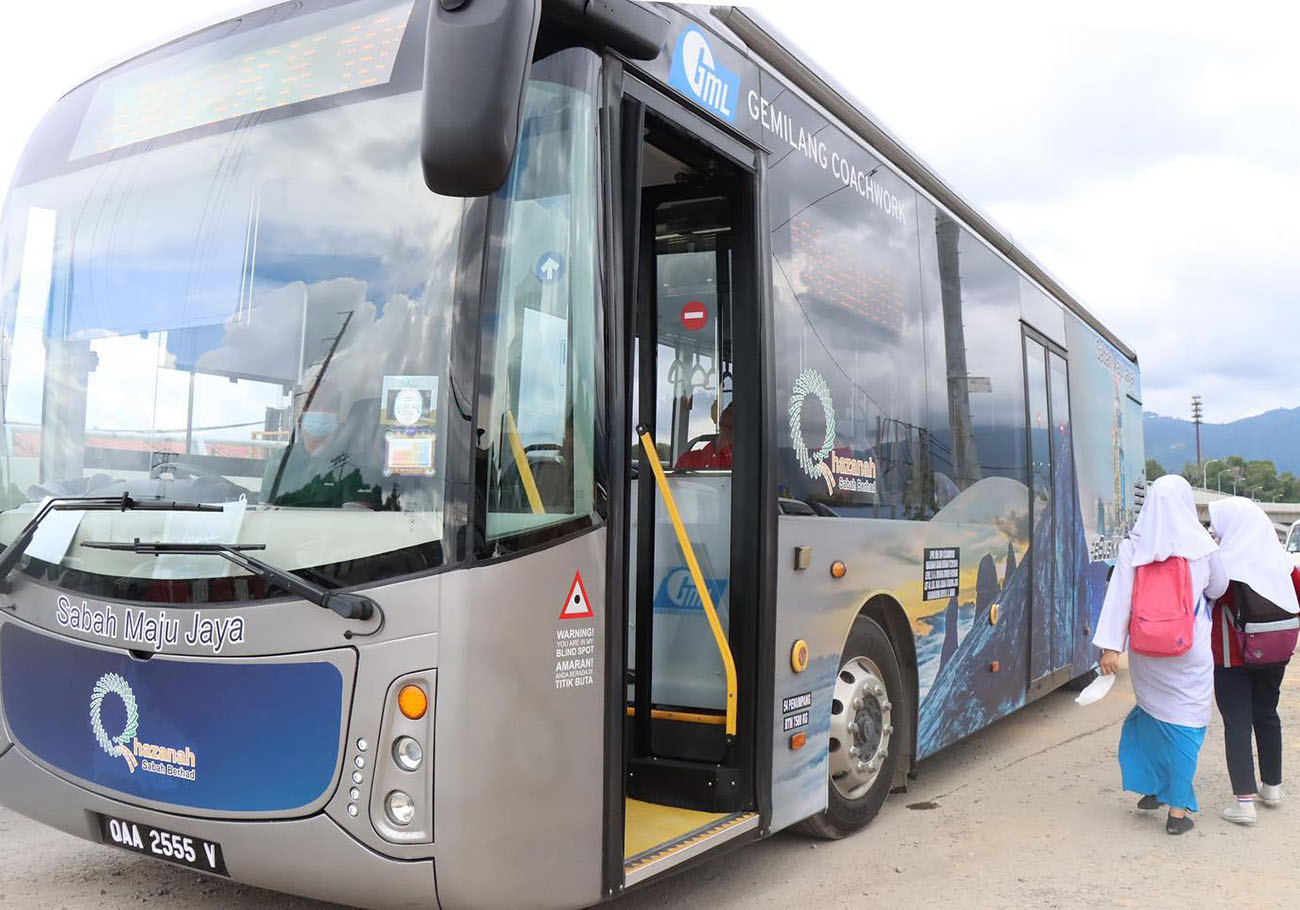
Sabah’s landmark e-BusKK pilot programme is now in full swing, as the state government embraces sustainable transportation to combat carbon emissions.
Spearheaded by Qhazanah Sabah Berhad (QSB), the strategic investment arm of the government, the electric bus service is a collaborative effort with Gemilang Coachwork Sdn Bhd, renowned for its expertise in manufacturing electric buses and aluminium bus bodies.
This initial pilot programme spans six months and is currently operated by a single electric bus. The vehicle has a seating capacity for 54 passengers and is thoughtfully equipped to enhance passenger convenience and safety.
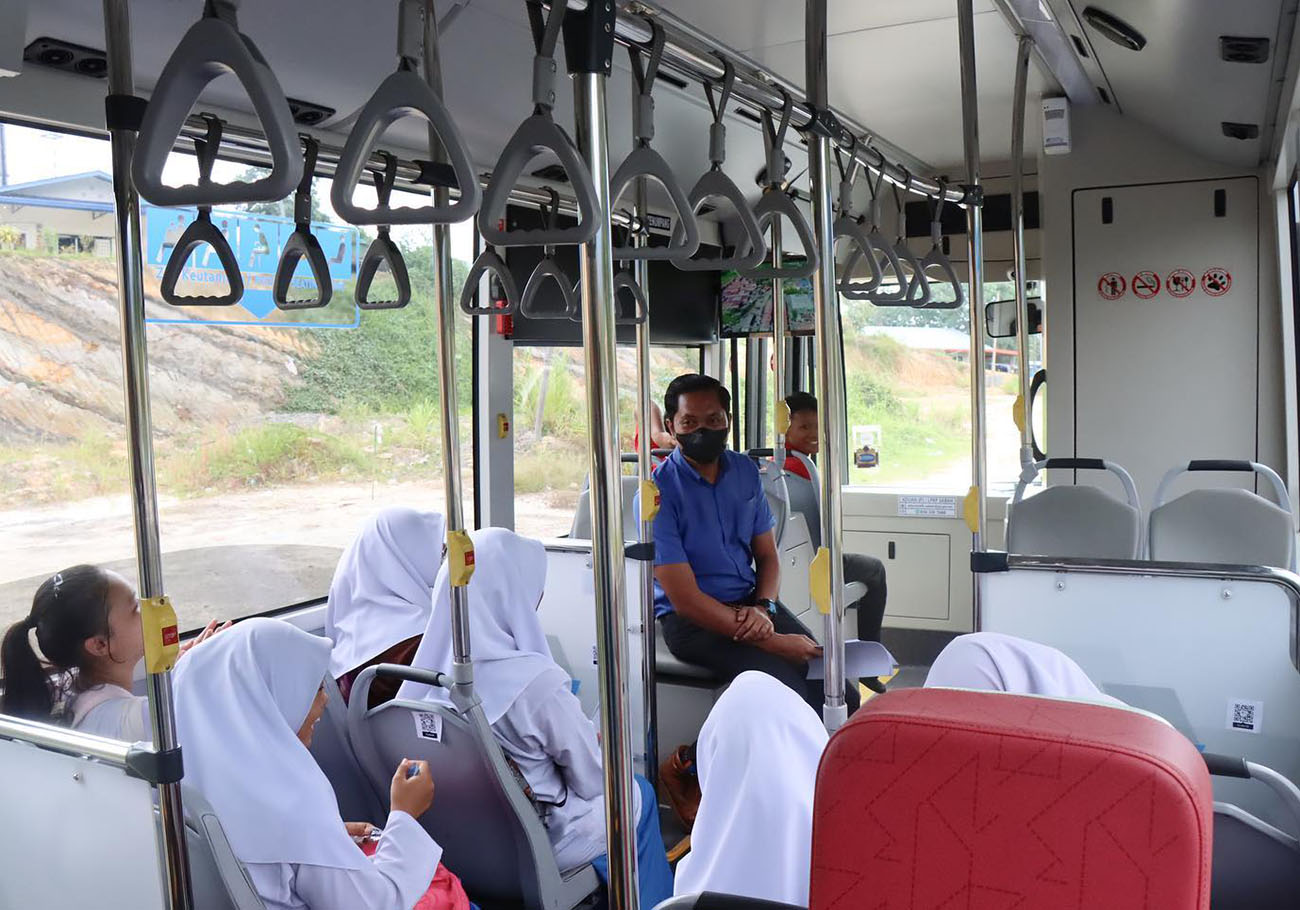
It features a ramp for easy access for elderly and disabled individuals, CCTV cameras for monitoring passenger safety, a GPS system for navigation, and an onboard driver monitoring system.
The e-BusKK route covers an 8.3km stretch connecting Sepanggar and Menara Kinabalu in the bustling downtown area of Kota Kinabalu, Sabah’s capital city. The service is provided free of charge to the public throughout the pilot programme, allowing citizens to experience and evaluate the benefits of electric public transportation.
Sabah’s green initiatives and future expansion
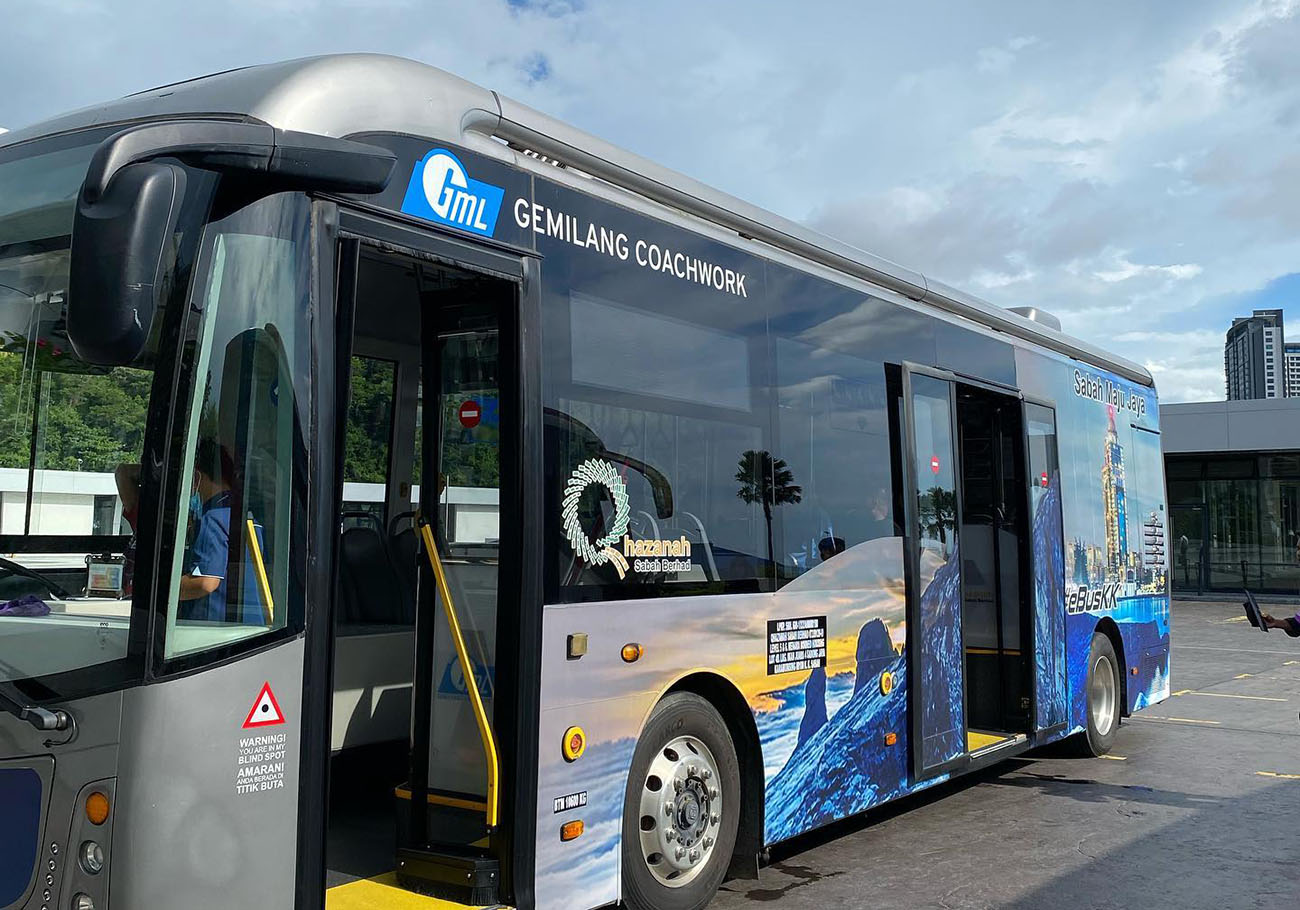
The introduction of the e-BusKK pilot programme marks the Sabah state government’s dedication to sustainable practices and reducing carbon emissions in Kota Kinabalu. As part of its long-term vision, Sabah aims to achieve carbon neutrality in the city by 2050, making significant strides towards environmental preservation.
The e-BusKK pilot programme serves as a crucial assessment to determine the viability and feasibility of electric buses as an integral part of the state’s public transportation system. This initiative complements existing public transit options while paving the way for a greener and more eco-friendly future.
Qhazanah Sabah Berhad (QSB) executive director, Mohd Shukor Abdul Mumin, expressed optimism about the e-BusKK pilot programme’s success. Once the trial phase concludes, the plan is to expand the electric bus service to other districts within Sabah.
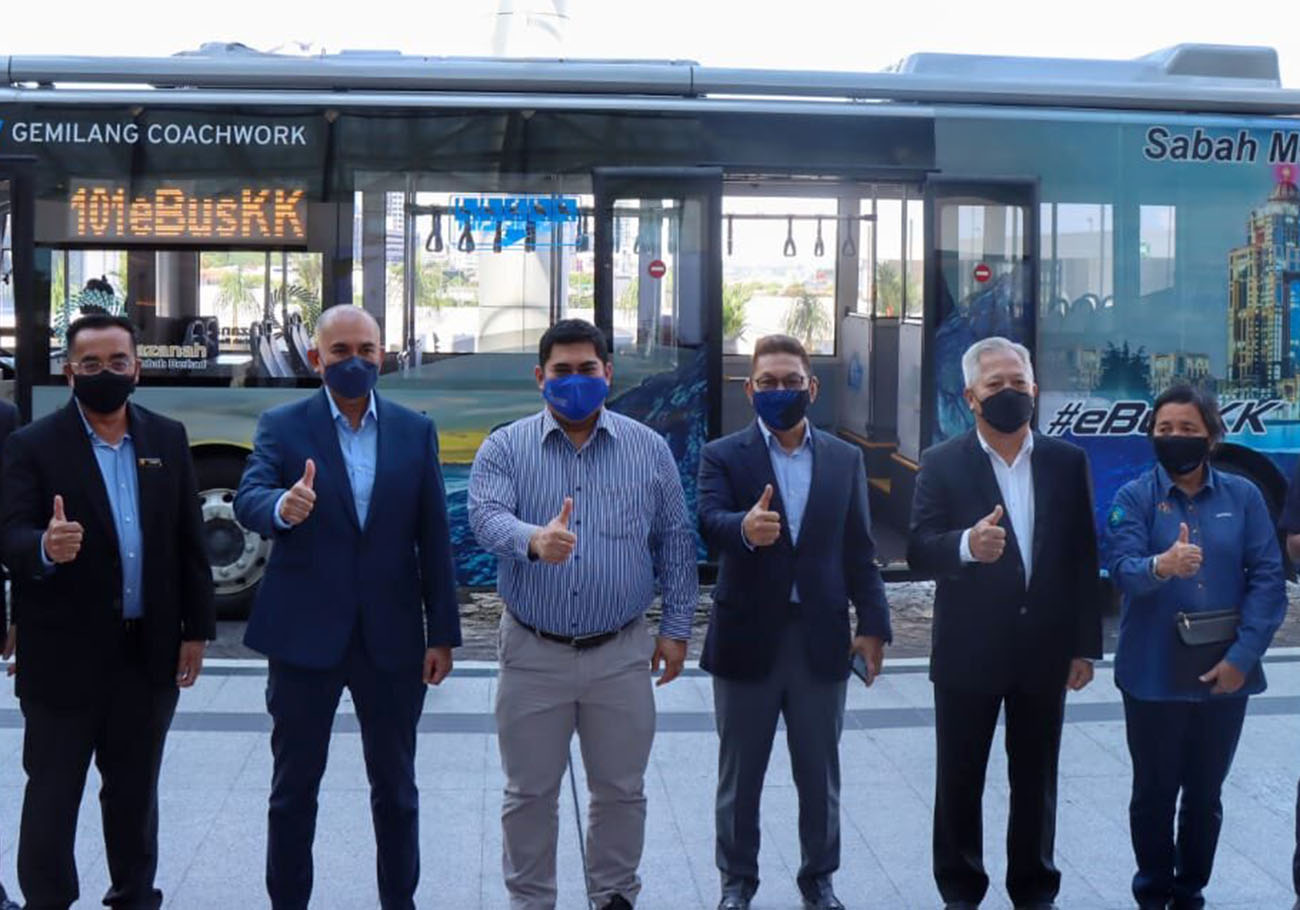
By next year, when the full operations of e-BusKK commence, Qhazanah aims to introduce between five to 20 electric buses to bolster public transportation services in the state.
In recent times, several other cities in Malaysia have also embraced electric buses, incorporating them into their public transportation systems. Notably, Kuching, Johor Bahru, Melaka, and Taiping have launched trials for electric buses, affirming the country’s commitment to sustainable transportation solutions.
The Sabah state government’s pioneering e-BusKK pilot programme marks a significant milestone in the journey towards sustainable and environmentally conscious public transportation in Kota Kinabalu.
The success of this programme is expected to pave the way for further expansion, with plans to introduce multiple electric buses across Sabah by next year.
Sabah’s green initiatives, coupled with similar efforts in other Malaysian cities, exemplify the country’s commitment to promoting sustainable practices and enhancing public transportation systems for a greener and more sustainable future.


